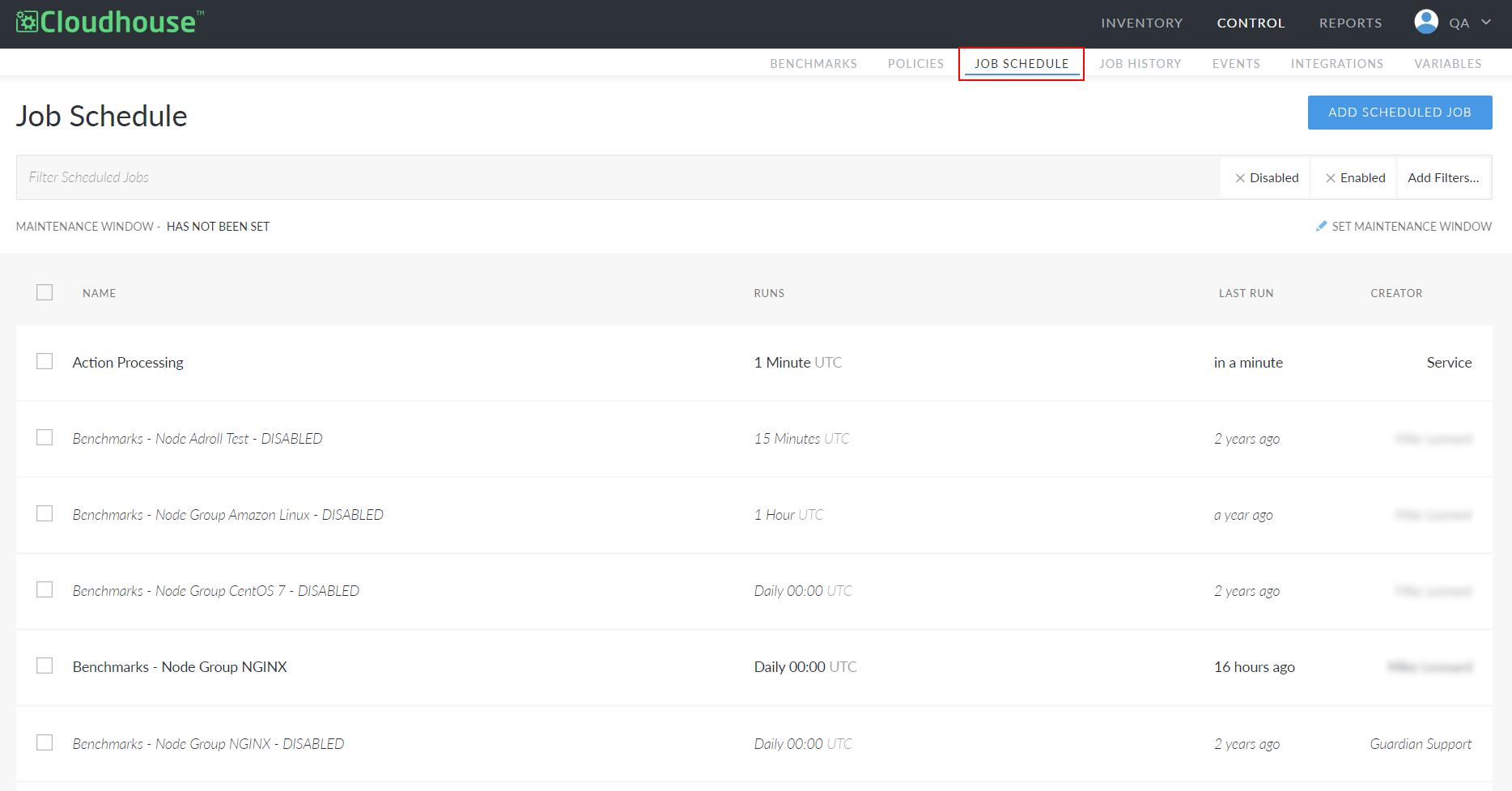Job Schedule
The Job Schedule tab (

The Job Schedule tab displays all of the jobs that have been scheduled to run, within a table structure. The Name heading describes the job type, the Runs heading describes the frequency of the job cycle that has been set. For example, '15 Minutes' means that the job has been scheduled to run once every 15 minutes. The Last Run heading describes when the job was last run, and the Creator heading describes the user account that is responsible for creating the job.
Optionally, you can organize the job schedule results by one of the heading's categories. For example, you can click the Runs heading to organize the job schedules by most/least frequently ran. Or, you could click the Name heading to display the job schedule by alphabetical/reverse alphabetical order.
Filter Scheduled Jobs
Additionally, you can filter the scheduled jobs that are displayed within the table using the search box. Search for identifying information and click Add Filters to display the Job Type drop-down menu. Here, you can select whether you want to return 'Disabled', 'Enabled' or both job types in your results.

Set Maintenance Window
A maintenance window is a recurring period of time where no jobs are configured to run, allowing you to complete any updates to your Guardian instance as needed. To set the maintenance window, click Set Maintenance Window in the Job Schedule tab.

Depending on how often you want the maintenance to run, you can configure the window of operation to run on a Daily or Weekly basis. Select the option that best suits your Guardian instance's needs and then configure the start and finish times. Once complete, click to Save your changes. Once set, the Set Maintenance Window option will update to Edit Maintenance Window. If you want to change the maintenance window, you can do so via the same procedure.
Add a Scheduled Job
There are many types of jobs you can set up to run according to a schedule, with each job organized by the type of operation that is being performed. The following list describes the job types available to add to your Guardian instance:
| Job Types | Description |
|---|---|
| AWS Auto Scaling Group Sync |
Scheduled sync of any changes that have occurred within an AWS Auto Scaling Group. For more information, see AWS Auto Scaling Group Sync – Job Type. |
| Benchmarks |
Scheduled run of any benchmarks that are associated with a specified node, or node group. For more information, see Benchmarks – Job Type. |
| Purge Inactive LDAP Users |
Scheduled purge of any LDAP credentials that are no longer present on the LDAP server. For more information, see Purge Inactive LDAP Users – Job Type. |
| Real-Time |
Scheduled check for any Real-Time Forwarder (RTF) events that have occurred on a specified node, node group, or environment. For more information, see Real-Time – Job Type. |
| Report |
Scheduled scan of a specified node type, generated in a report and emailed to a list of recipients. For more information, see Report – Job Type. |
| Scan |
Scheduled scan of a specific node, node group, or environment. For more information, see Scan – Job Type. |
| Scheduled Change Report |
Scheduled scan of a specified node type, generated in a report that details the changes that have occurred, emailed to a list of recipients. For more information, see Scheduled Change Report – Job Type. |
| Synchronize Nodes – Job Type |
Scheduled node synchronization job to run according to a specified cycle. Using an existing integration, this job type synchronizes the nodes present within that target source to your Guardian instance. For more information, see Synchronize Nodes – Job Type. |